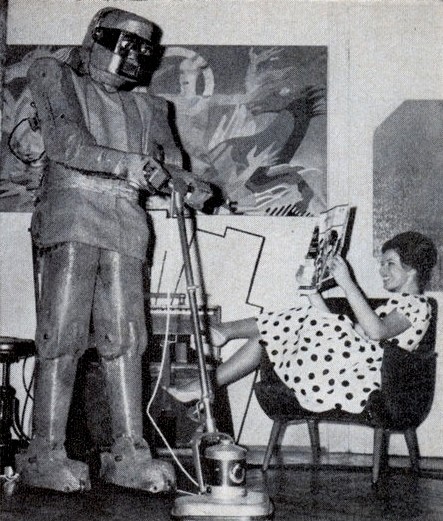Whenever I read that new robots will “work alongside humans, not replace them,” I think two things:
- Some humans will be immediately replaced.
- The rest (or almost all of them) will eventually be replaced.
It’s great if we have AI that can do the drudgery for us, delivering products and waxing floors and stocking warehouse shelves, but unless this new machine age somehow creates a corresponding number of jobs to replace those lost, we’re headed for some difficult challenges. And, no, not even bartenders are safe.
From Timothy Aeppel at WSJ:
Robots aren’t about to elbow bartenders out of a job.
But versions of them could start showing up at your favorite watering holes. Indeed, some are already out there.
The Makr Shakr is the creation of an Italian company and consists of robotic arms that mix cocktails, and then place them on a conveyor belt to be carried across the bar to the waiting customer or a server. The first two installations are on Royal Caribbean cruise ships, where they’re the centerpieces of “Bionic Bars.”
The goal isn’t to do away with bartenders, who are still needed to tend the machines and, when necessary, deliver the drinks. Carlo Ratti, a professor at the Massachusetts Institute of Technology and cofounder of Makr Shakr, says the project began when he was asked to design a machine that would allow people to interact with robots in an unexpected setting. “It started as something to shock people in a tangible way,” he says, to show them “what the third industrial revolution is all about.”
Another example is the “Bartendro,” a box with hoses and flashing lights that can mix an array of drinks—but it too needs to be tended by a human, who among other things puts the glass into position under the pour spout and then delivers the drink to the customer.
Machines like these are designed to work alongside humans, not replace them.•



